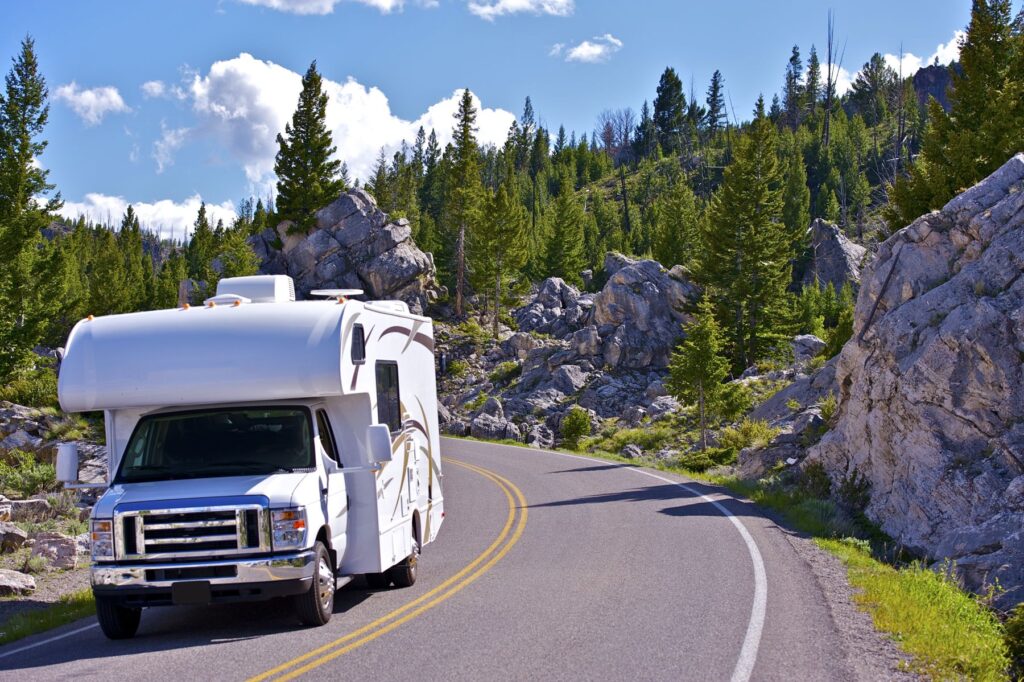The allure of open roads, breathtaking landscapes, and unbridled freedom makes recreational vehicle travel an increasingly popular lifestyle choice. However, maintaining financial stability while embracing nomadic adventures requires strategic planning and thoughtful decision-making. Fortunately, numerous opportunities exist to reduce expenses without sacrificing enjoyable experiences during your journey.
Fuel Economy Strategies
Optimizing Driving Habits
Fuel typically represents one of the largest recurring expenses for RV enthusiasts. Adopting efficient driving techniques can significantly reduce consumption rates. Maintaining steady speeds around 55-60 mph generally provides optimal efficiency for most recreational vehicles. Aggressive acceleration and abrupt braking substantially increase fuel usage, sometimes by up to 30%.
Adjusting speed and acceleration patterns can save hundreds of dollars monthly during cross-country travels. Have you considered using cruise control? This feature helps maintain consistent highway speeds, preventing unconscious acceleration that unnecessarily depletes fuel. Additionally, reducing idling time whenever feasible preserves valuable resources.
Route Planning Applications
Various mobile applications specifically designed for RV travelers provide optimal routing options based on fuel efficiency rather than merely the shortest distances. These tools account for elevation changes, traffic patterns, and construction zones that might otherwise create unexpected fuel consumption.
Planning travel days during weekday mornings often reduces congestion-related inefficiencies. Avoiding rush hour traffic in metropolitan areas prevents extended idling periods that rapidly consume fuel without adding mileage to your journey.
Fuel Discount Programs
Several national chains offer membership-based discount programs specifically targeting RV travelers. Though seemingly modest, these savings accumulate substantially during extended travel periods.
Additionally, many wholesale clubs like Costco and Sam’s Club maintain fuel stations offering competitive pricing for members. Strategic planning around these locations can yield noteworthy savings throughout extensive journeys.
Accommodation Cost Reduction
Extended Stay Discounts
Many RV parks offer dramatically reduced weekly and monthly rates compared to daily pricing. Travelers with flexible itineraries can leverage these discounts by extending stays at individual locations. Monthly rates frequently provide 40-60% savings versus equivalent daily reservations.
Working remotely during extended stays allows travelers to explore surrounding areas on weekends while maintaining income streams. This approach combines financial prudence with rich experiential opportunities.
Food Budget Management
Meal Planning Efficiency
Developing comprehensive meal plans before grocery shopping prevents impulse purchases and reduces food waste. Limited storage space in recreational vehicles makes thoughtful consumption patterns particularly important. Planning meals utilizing similar ingredients creates efficiency while minimizing spoilage risks.
Modern pressure cookers designed for RV use transform affordable cuts of meat into delicious meals while consuming minimal propane. These versatile appliances facilitate one-pot cooking, simplifying preparation while reducing cleanup requirements.
Grocery Shopping Strategies
Rural areas sometimes offer limited shopping options with elevated prices. Stocking pantry staples and frozen items when passing through metropolitan regions with competitive pricing helps avoid premium costs in remote locations.
Many experienced RVers utilize grocery store loyalty programs and digital coupons to maximize savings. Applications aggregating deals across multiple chains help identify optimal shopping locations along planned routes.
Have you explored farmers’ markets during your travels? These local venues frequently offer fresh produce at competitive prices while providing authentic regional experiences. Supporting local agriculture adds cultural dimensions to practical shopping necessities.
Restaurant Alternatives
While sampling local cuisine enhances travel experiences, daily restaurant visits quickly deplete budgets. A balanced approach might include enjoying local specialties weekly and preparing simpler meals. Lunch specials typically provide better value than dinner options at identical establishments.
Early dining specials often provide identical portions at 25-30% discounts compared to regular dinner pricing. Happy hour represents an excellent opportunity to sample local restaurants at reduced prices while experiencing regional cuisine.
Maintenance Optimization
Preventative Approaches
Regular maintenance provides substantial financial benefits by preventing catastrophic failures requiring expensive emergency repairs. Developing comprehensive checklists covering essential systems helps identify potential issues before they escalate into significant problems.
Learning basic maintenance procedures significantly reduces service costs throughout vehicle ownership. Oil changes, filter replacements, and fluid checks require minimal specialized tools yet represent frequent professional service expenses.
Parts Sourcing Alternatives
Exploring multiple parts sources often reveals substantial pricing variations when repairs become necessary. Online retailers frequently offer identical components at 30-40% discounts compared to dealership pricing. Automotive discount programs reduce the costs of regularly replaced items.
Salvage yards specializing in recreational vehicles sometimes offer dramatic savings on components, particularly for older models with limited parts availability. Developing relationships with these specialized businesses provides valuable resources during unexpected repair situations.
Technology and Utilities Management
Solar Power Implementation
Installing solar power systems represents a substantial initial investment but delivers ongoing operational savings. Modern panel efficiency makes self-sufficiency increasingly achievable for modestly sized installations. Battery technologies continue improving, providing extended capacity at reduced weight.
A 400-watt system can completely transform camping options for many travelers. Maintaining battery charge without running generators or requiring electrical hookups drastically reduces accommodation costs while enhancing experiences through quieter, more remote camping opportunities.
Connectivity Optimization
Internet connectivity represents a significant expense for many modern travelers, particularly those working remotely. Utilizing public Wi-Fi when conducting bandwidth-intensive activities helps preserve limited data plans. Libraries, visitor centers, and certain restaurant chains reliably offer complimentary high-speed connections suitable for video conferencing and file transfers.
Various signal-boosting technologies significantly improve cellular reception in marginal coverage areas, reducing reliance on expensive satellite alternatives. Strategic antenna placement often transforms unusable signals into workable connections sufficient for essential communications.
Water Conservation Techniques
Implementing water-saving practices reduces utility expenses at metered campgrounds while extending boondocking duration capabilities. Low-flow showerheads explicitly designed for RV applications maintain satisfactory pressure while reducing consumption. Navy-style shower techniques (wetting, turning water off during soaping, rinsing briefly) dramatically decrease water usage without sacrificing cleanliness.
Biodegradable cleaning products allow creative graywater handling in appropriate environments, reducing dependency on dump station availability. These environmentally conscious approaches simultaneously support financial goals while minimizing ecological impact.
Insurance Optimization
Coverage Comparisons
Insurance represents a significant fixed expense deserving thorough evaluation. Specialized RV policies from multiple providers often reveal surprising premium variations for identical coverage levels. Requesting quotes from at least three companies provides valuable comparison opportunities.
Many insurers offer substantial discounts for safety course completion. These educational programs frequently require modest time investments while delivering ongoing premium reductions throughout policy lifetimes. Additionally, maintaining clean driving records provides the most substantial long-term insurance savings.
Seasonal Policy Adjustments
Travelers using recreational vehicles seasonally should explore storage policy options during inactive periods. Temporarily reducing coverage levels while vehicles remain stationary often delivers substantial savings without creating unacceptable risk exposure.
Have you reviewed potential discount opportunities with your current provider? Many companies offer reductions for various affiliations, including military service, educational backgrounds, professional organizations, and retirement associations. These discounts typically require specific requests rather than automatic applications.
Entertainment and Experience Budgeting
National Park Strategies
America’s national parks offer extraordinary experiences at reasonable costs. Senior passes provide lifetime access for modest one-time fees, representing exceptional value for eligible travelers. Annual passes benefit younger visitors planning multiple park visits within 12-month periods.
Many spectacular parks remain relatively unknown compared to iconic destinations. They offer similar natural beauty with reduced crowds and often lower nearby accommodation costs. Exploring these alternatives provides memorable experiences while supporting budget-conscious travel approaches.
Free Attraction Alternatives
Countless fascinating destinations across North America require no admission fees whatsoever. Historical districts, scenic byways, public gardens, and cultural events offer authentic experiences without financial requirements. Regional visitor centers typically provide excellent guidance regarding free attractions deserving attention.
Factory tours represent some of the most memorable experiences available to travelers. These behind-the-scenes opportunities cost nothing yet provide fascinating insights into regional industries and products. Guitar factories, breweries, and artisanal food producers frequently offer complimentary educational experiences.
Financial Planning Framework
Expense Tracking Systems
Maintaining accurate records of all travel-related expenditures provides essential data for identifying potential improvement areas. Various mobile applications for RV travelers simplify expense categorization while generating helpful reports highlighting spending patterns.
Regular financial reviews help identify gradual cost increases that might otherwise escape notice. Monthly budget assessments allow timely adjustments before minor issues become significant problems affecting overall travel sustainability.
Emergency Fund Importance
Establishing dedicated emergency reserves specifically for unexpected vehicle repairs provides crucial financial stability. Financial experts recommend maintaining minimum balances covering potential major component failures (transmission, engine, etc.) to prevent catastrophic budget disruptions.
Credit cards offering roadside assistance benefits provide valuable safety nets for unexpected mechanical issues. Researching these specialized financial products before beginning extended journeys delivers peace of mind alongside practical benefits during challenging situations.
Community Knowledge Leveraging
Online Forums Participation
Active participation in RV-focused online communities provides access to collective wisdom regarding cost-saving opportunities. These platforms frequently share timely information about regional fuel pricing, campground discount availability, and effective negotiation strategies for various services.
Fellow travelers can guide newcomers toward countless savings opportunities that might remain undiscovered. The willingness of experienced community members to share knowledge transforms financial approaches entirely.
Local Expertise Utilization
Engaging with permanent residents in visited regions often reveals valuable insights regarding affordable dining options, entertainment alternatives, and practical service providers. Developing these connections enriches travel experiences while supporting financial objectives through insider knowledge unavailable through standard tourist information channels.
Lake LaCroix: Your Partner in Budget-Friendly RV Adventures
Lake LaCroix is a premier destination for cost-conscious RV enthusiasts seeking exceptional value without compromising quality experiences. Our resort offers thoughtfully designed amenities targeting travelers focused on financial efficiency during their journeys. Spacious sites with full hookups provide opportunities for extended stays at competitive monthly rates substantially below industry averages.
The strategic location positions guests within easy driving distance of numerous free recreational activities, including hiking trails, fishing spots, and scenic viewpoints. Our community kitchen facilities allow travelers to prepare meals economically while enjoying social interactions with fellow adventurers. Regular workshops covering RV maintenance fundamentals help guests develop money-saving skills that are applicable throughout their travels.
Most importantly, Lake LaCroix maintains an atmosphere where budget-conscious travel represents a celebrated lifestyle choice rather than a compromise. Staff members regularly share personalized recommendations for local attractions offering exceptional value, ensuring guests maximize experiences while minimizing expenditures.
Conclusion
Implementing thoughtful strategies across multiple expense categories creates sustainable financial frameworks supporting extended RV adventures. The cumulative impact of seemingly modest individual savings ultimately determines overall travel sustainability. Balancing cost-consciousness with experience quality allows travelers to maintain lifestyle satisfaction while achieving responsible financial outcomes.
Have you begun identifying specific approaches aligning with your travel priorities? Customizing these strategies to match individual preferences and specific vehicle requirements maximizes effectiveness and implementation likelihood. The most successful travelers develop personalized systems supporting their unique objectives rather than applying generic approaches without customization.


